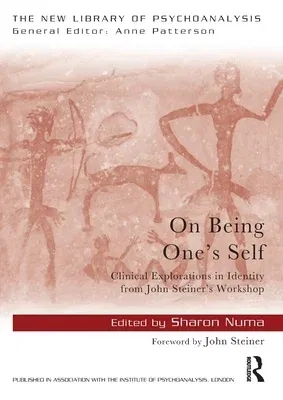On Being One's Self: Clinical Explorations in Identity from John Steiner's WorkshopPaperback, 5 September 2022

Qty
1
Turbo
Ships in 2 - 3 days
Only 1 left
Free Delivery
Cash on Delivery
15 Days
Free Returns
Secure Checkout

Part of Series
New Library of Psychoanalysis
Print Length
300 pages
Language
English
Publisher
Routledge
Date Published
5 Sep 2022
ISBN-10
1032210753
ISBN-13
9781032210759
Description
Product Details
Book Format:
Paperback
Country of Origin:
US
Date Published:
5 September 2022
Dimensions:
24.61 x
17.4 x
1.7 cm
ISBN-10:
1032210753
ISBN-13:
9781032210759
Language:
English
Location:
Oxford
Pages:
300
Publisher:
Weight:
530.7 gm